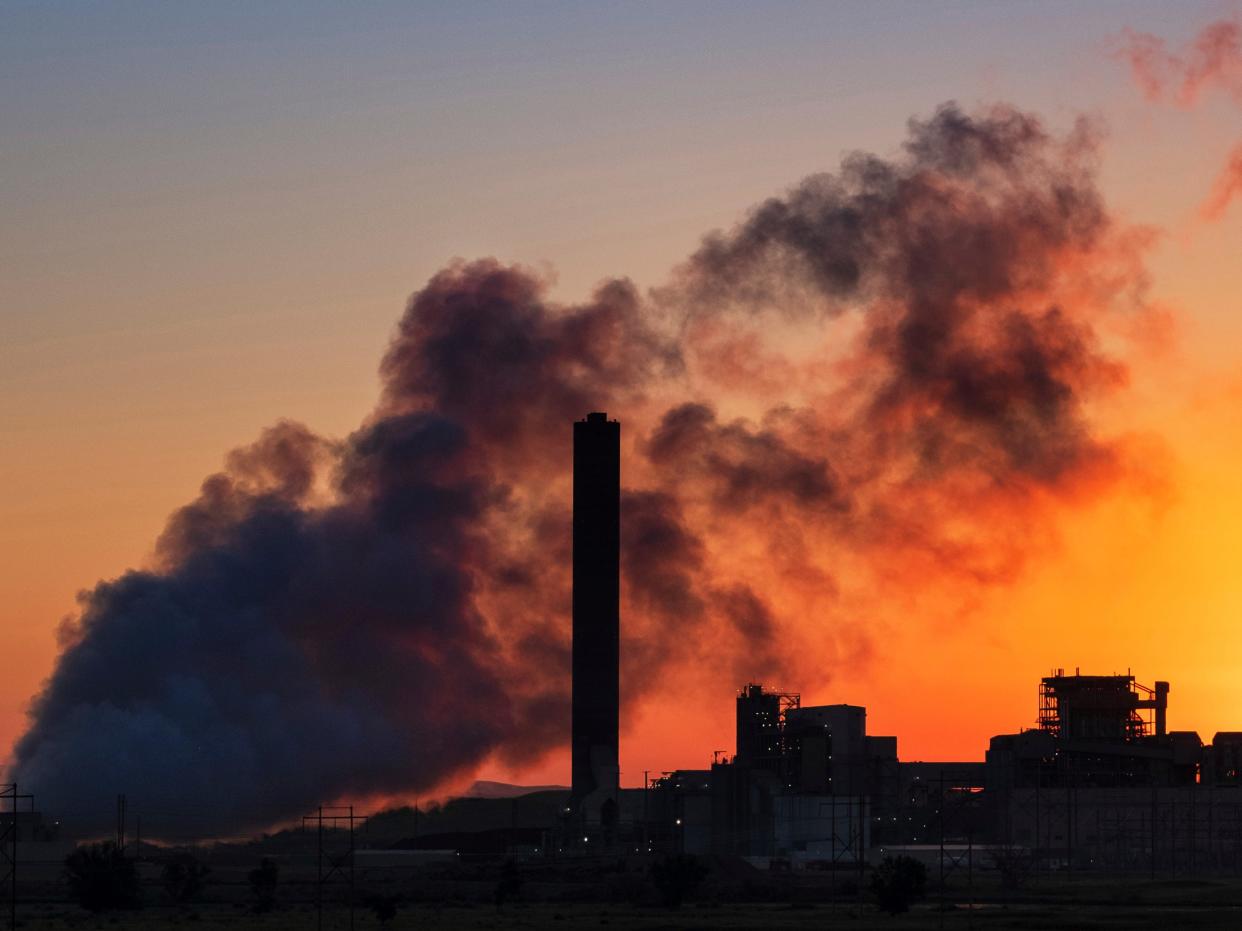Air pollution from cars, power plants and forest fires is risk factor for Alzheimer’s, study finds

Air pollution from cars, factories and forest fires is a risk factor for Alzheimer's disease, according to a sweeping new study.
The findings, based on data from thousands of American seniors with cognitive impairment, found that if they lived in a neighborhood with higher levels of pollution, they had an increased likelihood of amyloid plaques in the brain.
The plaques are a hallmark of Alzheimer's,the most common type of dementia which causes memory loss and affects behavior and cognitive ability.
The study, led by the University of California, San Francisco, was published on Monday in JAMA Neurology, the peer-reviewed journal of the American Medical Association.
The team looked at brain scans of more than 18,000 older Americans, from zip codes across the US, who were an average age of 75. All those who took part in the study had dementia or mild cognitive impairment.
Those who lived in the most polluted areas had a 10 percent increased probability of a scan which revealed amyloid plaques compared with those who lived in areas with cleaner air.
As nearly 6 million Americans have Alzheimer’s disease, it suggests that air pollution may be implicated in tens of thousands of cases.
A total of 18,178 individuals took part in the “IDEAS” study (Imaging Dementia - Evidence for Amyloid Scanning). Some 40 per cent of participants showed no evidence of the plaques on scans which suggested they had a different type of dementia.
Data from the US Environmental Protection Agency (EPA) was used to estimate the air pollution in the neighborhood of each participant.
The team looked at ground-level ozone - a dangerous air pollutant which largely makes up what is known as "smog". They also examined PM2.5, tiny particle pollution that 40 times smaller than the width of a human hair. PM2.5 comes from vehicle exhausts, the burning of fossil fuels, along with forest and grass fires.
As the concentrations of these pollutants increased, the likelihood of a positive PET scan rose progressively, the study found.
Dr Gil Rabinovic, who was part of the study from UCSF’s Memory and Aging Center, said that overall concentrations of PM2.5 would not be considered very high to be linked with the plaques, amounting to annual averages in San Francisco while the study was taking place.
"I think it's very appropriate that air pollution has been added to the modifiable risk factors highlighted by the Lancet Commission on dementia," Dr Rabinovic said. The Lancet, one of the world’s oldest and best known medical journals, decided in 2020 to include air pollution, along with excessive alcohol intake and traumatic brain injury, in a list of risk factors.
Studies from other parts of the world have shown similar findings on air pollution and cognitive impairment, dementia, and Alzheimer’s.
A 2018 study in China linked long-term exposure to air pollution with poor scores in verbal and math tests. Another 2018 study, published in the British Medical Journal, found evidence of a link between residential levels of air pollution across London and being diagnosed with dementia.
And as with climate change and other forms of environmental pollution, not all are affected equally.
A 2017 report by the NAACP and the Clean Air Task Force, titled “Fumes Across the Fence-Line”, revealed that Black Americans are 75 per cent more likely than other Americans to live close to oil and gas facilities that spew toxic pollutants.
A landmark study in June linked air pollution with negative effects on pregnancies across the US. Pregnant women exposed to hazardous environmental conditions were found to be more likely to have babies who are premature, underweight or stillborn, with black mothers and their infants most at risk.
Read More
Anxiety over climate crisis stopping people having children - study
Top California air, climate regulator hopes to run Biden EPA
Council moved at ‘glacial pace’ to address air pollution, inquest told

 Yahoo Movies
Yahoo Movies 
